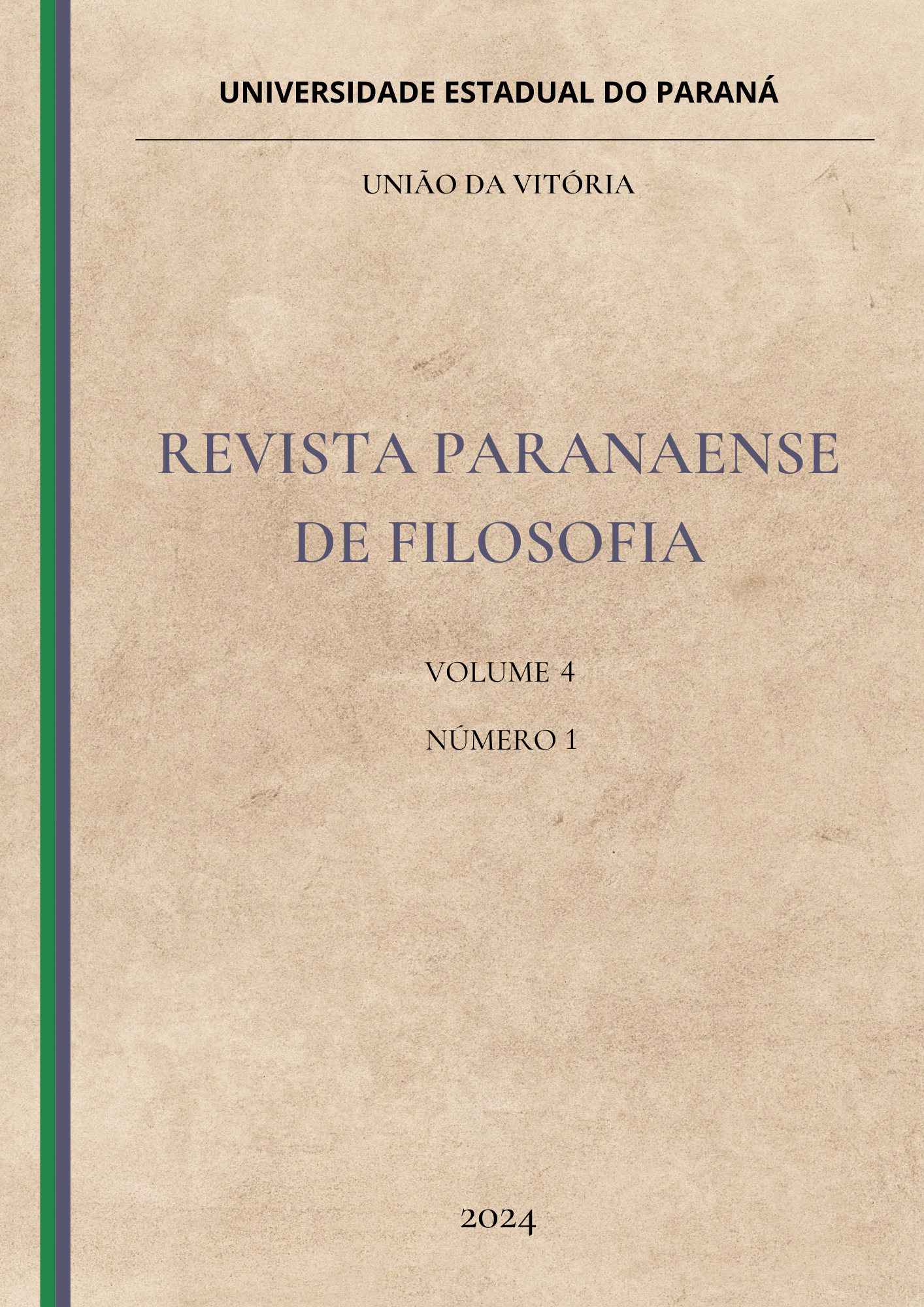O AREÓPAGO E SUA FUNÇÃO EDUCADORA NO PROCESSO DEMOCRÁTICO DOS GREGOS
DOI:
https://doi.org/10.33871/27639657.2024.4.1.8808Resumo
Este artigo se ocupa do problema da justiça e da democracia em suas origens gregas, tomando por base a instituição do Areópago. Na literatura grega o Tribunal do Areópago teve sua origem vinculada ao mito que narra o julgamento Ares, mencionado por Homero e registrado na Biblioteca de Apolodoro. Na descrição mítica é possível encontrar relações que marcaram a vinculação entre democracia e justiça. A formação tribunalícia com os deuses do panteão olímpico já demarcavam questões ambíguas e alternativas de ação próprias da vida política e jurídica do antigo mundo grego. Desse julgamento os gregos tomaram aspectos instrutivos importantes para a edificação do regime democrático, primeiramente com Sólon, e posteriormente com as reformulações de Clístenes, que resultaram na educação. O Areópago foi a instituição que tinha responsabilidade não apenas pela elaboração, aplicação e guarda da lei, mas também pela regulamentação dos critérios que serviriam à instrução dos gregos para o regime democrático. A origem da democracia na Grécia guarda aspectos substanciais, os quais ressurgem nos nossos dias e merecem revisitação para que não descuidemos em aperfeiçoá-la.
Downloads
Referências
APOLODORO, (1985), Biblioteca. Introducción de Javier Arce. Traducción y notas de Margarita Rodriguez de Sepúlveda, Madrid: Gredos.
FERREIRA, Renan. (2019). O surgimento da sofística e sua contribuição à educação política na Antiga Grécia. Belém do Pará: Clube de Autores.
HORNBLOWER, Simon (1996). Apollodorus of Athens. The Oxford Classical Dictionary. Oxford: Oxford University Press.
MANFREDI, Valério Massimo. (2010). Akropolis: a grande epopeia de Atenas. Tradução Mario Fondelli. Porto Alegre: LP&M; Rio de Janeiro: Rocco
PEREIRA, Isidro. (1984). Dicionário Grego – Português e Português – Grego. 6ª ed., Porto: Livraria Apostolado da Imprensa.
PLATÃO. (2016). A República. Tradução de Carlos Alberto Nunes, 4. ed. Rev., bilíngue. Belém: edu.ufpa.
PLATÃO. (1980). Górgias. Tradução de Carlos Alberto Nunes, Belém: edu.ufpa.
SPINELLI, Miguel. (2017). Ética e política: a edificação do éthos cívico da paideia grega. São Paulo: Loyola.
SPINELLI, Miguel. (2023). “Justiça, democracia e retórica sob o olhar do éthos epicureu”. Revista Paranaense de Filosofia, v.3, n.1, p. 146-176.
VERNANT, Jean-Pierre. (2002). As origens do pensamento grego. Trad. Ísis Borges B. da Fonseca. Rio de Janeiro: Difel.
Downloads
Publicado
Como Citar
Edição
Seção
Licença
Copyright (c) 2024 Revista Paranaense de Filosofia

Este trabalho está licenciado sob uma licença Creative Commons Attribution 4.0 International License.
Artigo publicado em acesso aberto sob a licença Creative Commons Attribuition 4.0 International Licence.
Os autores cedem o direito exclusivo de primeira publicação à Revista, sendo o trabalho licenciado simultaneamente sob a licença Creative Commons Attribution 4.0 International (CC BY). Esta licença permite que terceiros remixem, adaptem e criem a partir do trabalho publicado, atribuindo o devido crédito de autoria e publicação inicial neste periódico. Os autores têm autorização para assumir contratos adicionais separadamente, para distribuição não exclusiva da versão do trabalho publicada neste periódico (por exemplo: publicar em repositório institucional, em site pessoal, publicar uma tradução ou como capítulo de livro), com reconhecimento de autoria e publicação inicial neste periódico.



